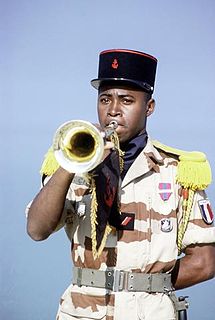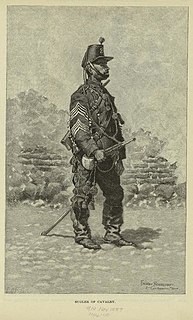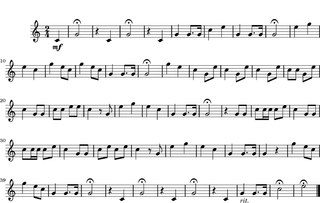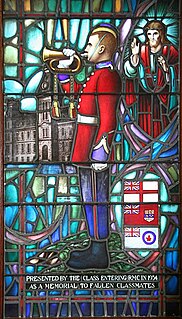 W
WA bugle call is a short tune, originating as a military signal announcing scheduled and certain non-scheduled events on a military installation, battlefield, or ship. Historically, bugles, drums, and other loud musical instruments were used for clear communication in the noise and confusion of a battlefield. Naval bugle calls were also used to command the crew of many warships.
 W
W"Attention" is a bugle call sounded as a warning that troops are about to be called to attention.
 W
WThe Mexican Armed Forces have a number of bugle and trumpet calls for the different branches. Drums and bugles are used to signal the various calls for most units of the Army, Navy and Air Force while the cavalry trumpet is used to signal calls for the cavalry units of the Army, Army artillery units and the Air Force. Many of the calls and signals listed below are also used by civilian drum and bugle bands.
 W
WThe "Last Post" is either an A or a B♭ bugle call, primarily within British infantry and Australian infantry regiments, or a D or an E♭ cavalry trumpet call in British cavalry and Royal Regiment of Artillery, and is used at Commonwealth military funerals, and ceremonies commemorating those who have lost their lives in war.
 W
W"Payday March" is a bugle march. The first strain, repeated, also serves as "Pay Call", a bugle call to announce that the troops will be paid.
 W
W"Reveille", called in French "Le Réveil" is a bugle call, trumpet call, drum, fife-and-drum or pipes call most often associated with the military; it is chiefly used to wake military personnel at sunrise. The name comes from réveille, the French word for "wake up".
 W
WThe Rogue's March is a derisive piece of music, formerly used in the British, American and Canadian military for making an example of delinquent soldiers, typically when drumming them out of the regiment. It was also played during the punishment of sailors. Two different tunes are recorded; the better known has been traced back to a Cavalier taunt song originating in 1642. Unofficial lyrics were composed to fit the tune. The march was taken up by civilian bands as a kind of rough music to show contempt for unpopular individuals or causes, notably during the American Revolution. It was sometimes played out of context as a prank, or to satirise a powerful person. Historically The Rogue's March is the second piece of identified music known to have been performed in Australia.
 W
W"The Rouse" is a bugle call most often associated with the military in Commonwealth countries. It is commonly played following "Last Post" at military services, and is often mistakenly referred to as "Reveille".
 W
WA bugle call is a short tune, originating as a military signal announcing scheduled and certain non-scheduled events on a military installation, battlefield, or ship. Historically, bugles, drums, and other loud musical instruments were used for clear communication in the noise and confusion of a battlefield. Naval bugle calls were also used to command the crew of many warships.
 W
W"Sunset", also known as the "Retreat Call", is a bugle call played in United Kingdom and British Commonwealth countries to signal the end of the official military day. In common with all bugle calls, it consists only of notes from a single overtone series. This allows it to be playable on a bugle or equivalently on a trumpet without moving the valves.
 W
W"Taps" is a bugle call during flag ceremonies and at military funerals by the United States Armed Forces. The official military version is played by a single bugle or trumpet, although other versions of the tune may be played in other contexts. It is also performed often at Girl Guide, Girl Scout, and Boy Scout meetings and camps. The tune is also sometimes known as "Butterfield's Lullaby", or by the first line of the lyric, "Day Is Done". The duration may vary to some extent.